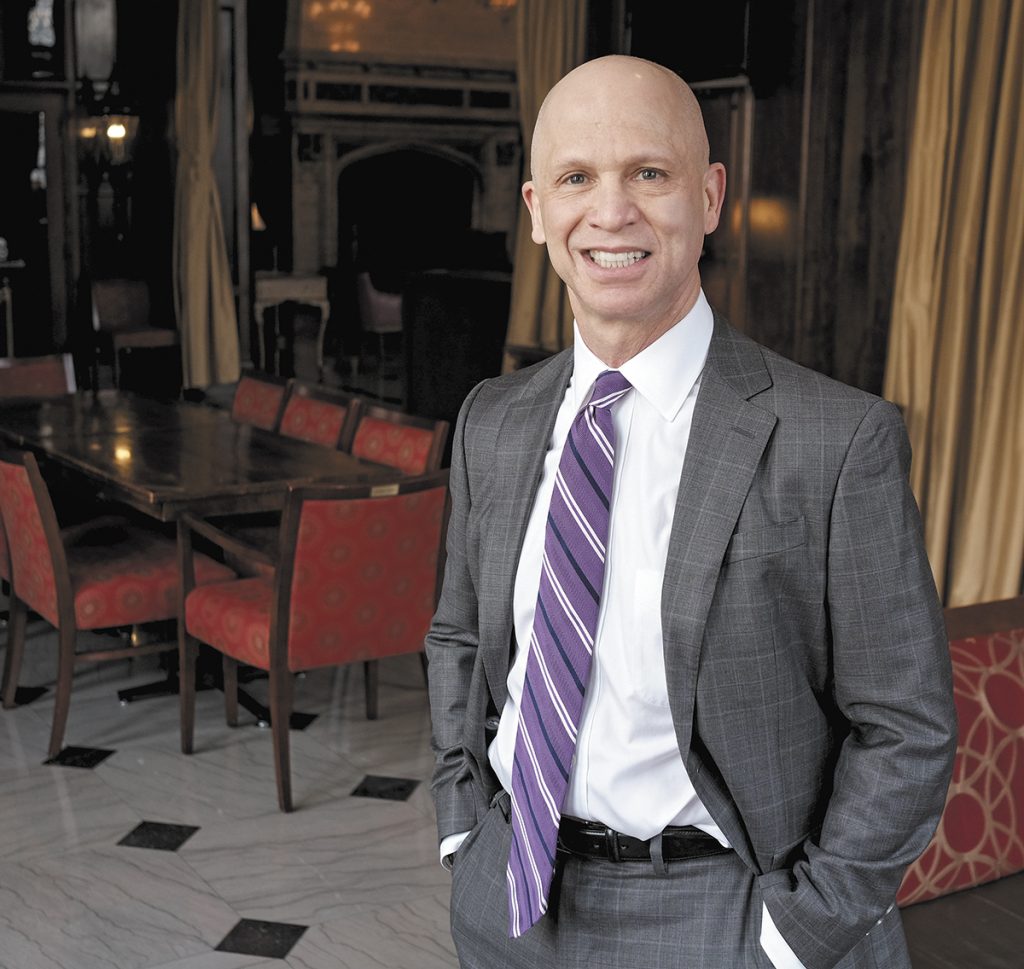Subscriber Benefit
As a subscriber you can listen to articles at work, in the car, or while you work out. Subscribe NowIn what can be an emotionally charged practice of law, Drew Soshnick is as cool as they come, his colleagues say. A longtime practitioner and leader at Faegre, Soshnick’s clients include high-net-worth celebrities, athletes and public figures who may be involved in family law or business disputes. Described as being at the forefront of matrimonial law in Indiana and nationally, Soshnick also is a leader in numerous legal and community-oriented organizations, and he finds time to devote to pro bono cases.
What are some of the attributes of a successful family law attorney?
A successful family law attorney must possess a variety of qualities. Compassion, empathy and patience are essentials, but those qualities must not become sympathy. Family law lawyers must not start “feeling” a situation as if he or she were the client. Equally important, listening is critical. In order to understand what a client is feeling, and what a client’s goals and expectations are, a family law lawyer must listen carefully and gather all relevant facts. Additionally, a successful family law lawyer must be a tenacious advocate for a client while at the same time redirecting unrealistic expectations to achievable goals. All the while being polite, civil and reasonable to all involved. Being unreasonable or argumentative for the sake of being unreasonable or argumentative is counterproductive to a client’s goals and objectives.
If you could change one law in Indiana, what would that be?
Further refine the Indiana Civil Protection Order Act to afford broader protections to victims of domestic violence while at the same time limiting the inappropriate use of this statute.
If you hadn’t pursued a legal career, what do you imagine you might be doing?
I always planned to be a lawyer and follow in my father’s footsteps. Harold Soshnick was a legendary Indiana trial lawyer. Imagining an alternative, I have a love for and facility with numbers and enjoy politics and military history. I can easily envision being an economics professor or political science professor.
What is your favorite aspect of your work with the Indianapolis Public Library Foundation?
The mission of the Indianapolis Public Library Foundation is to enhance literacy and offer opportunities to the community in a wide array of areas such as vocational training, educational advancement and historical preservation. While I enjoy all aspects of working with the foundation, the most rewarding aspect is to interact with library branch staff and patrons where you can see the foundation’s good works coming to fruition.
What do you most like to do when you have free time?
Running, weightlifting, hiking in the Rockies with my wife, attending heavy metal concerts with our son, discussing law with our lawyer daughter, and all things Northwestern.
A colleague described you as “a master of civility.” How important has civility been to your success?
Civility is the key ingredient to success. As attorneys, we are privileged to be able to help others. That brings with it an obligation to be civil and respectful to all we encounter both professionally and personally. Not only is that the right thing to do; it advances our clients’ interests. I saw my father carry himself that way, and that instilled those values in me when I was very young. My mentors provided the same guidance, and I am particularly grateful for the lessons in civility that have played a large part in my career.
What do you get from mentoring others?
It is gratifying to have the opportunity to mentor younger lawyers. I have had the privilege of mentoring both within our firm and externally. I am struck by the intelligence and inquisitiveness of our newer attorneys and find that I almost always learn from them and get more in return. Plus, it’s fun!•
Who is someone who mentored you, and what did you learn from them?
Bill Stober taught me how to practice law. He was a widely respected then-Baker & Daniels lawyer who let me carry his bag and have tremendous professional opportunities in a wide variety of subject matter areas very early in my career. Bill is now retired, but I am beyond grateful for his guidance and friendship. A great lesson I learned from Bill was to let younger lawyers have opportunities commensurate with their abilities — even if the younger lawyers were uncertain whether they could handle the assignment. That is the only way to learn and grow career-wise, and I have enjoyed watching younger lawyers take those opportunities and succeed.
Why is significant pro bono work important to you?
Access to justice is an endemic problem. As lawyers, we have an obligation to help those less fortunate. Helping people is what lawyers do. Having the privilege of helping people is the most rewarding part of practicing law and is the essence of our profession. There is no higher calling or better feeling than providing assistance to those in need without asking anything in return. I cannot imagine practicing law without a large pro bono component, and I relish the chance to encourage other lawyers to join in this worthy mission.
What advice would you give your younger self?
Although I learned it early in my career and found it to be very constructive, delegate work even earlier to capable colleagues.
Please enable JavaScript to view this content.

